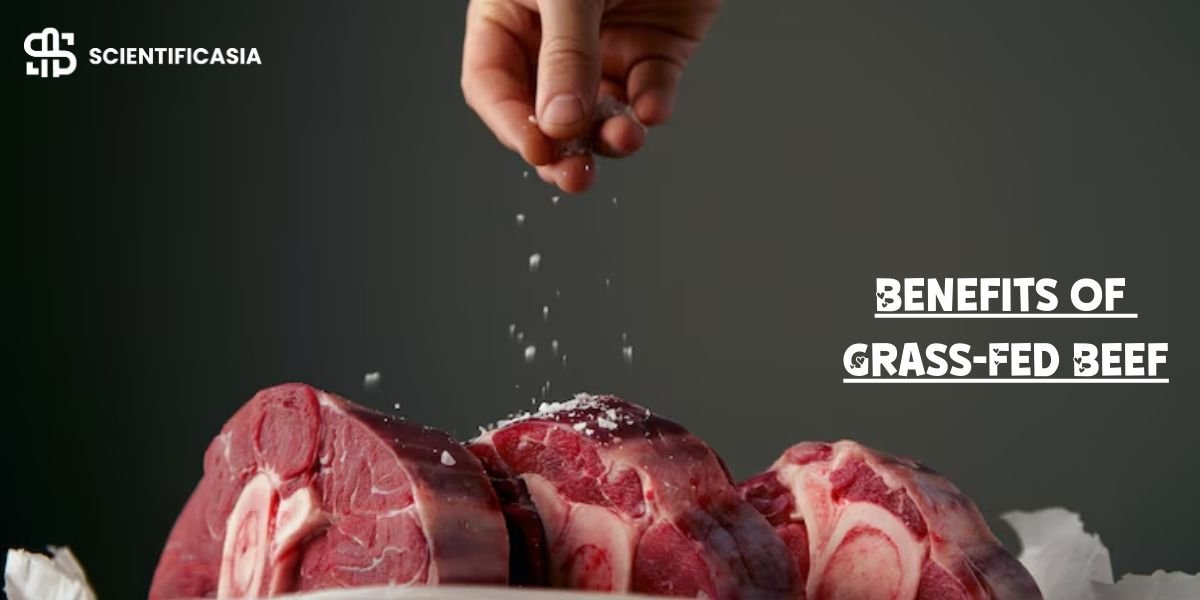Meat plays a crucial role in a carnivore’s diet, but what specifically contributes to its importance? Cattle come in a large variety across the globe, from North American Angus Cattle to Simmental Cattle in Switzerland. Although these animals are known to come from various forms of origin, there is one common theme amongst high-quality cattle that sets them apart from the rest: their diet. Animals are raised in different conditions, and that has a direct impact on the quality of their meat. The differentiation arises from cattle being raised as either grass-fed or grain-fed, impacting the quality of the beef. Stay with us, we’ll walk you through the impact of
Health Benefits of Grass-Fed Beef
Grass-fed beef is known for its superior nutritional profile compared to conventional grain-fed beef. One of its most significant advantages is its higher concentration of omega-3 fatty acids, which are essential for heart and brain health. Grass-fed beef also contains more conjugated linoleic acid (CLA), a fatty acid linked to reduced body fat and improved immune function. Additionally, it offers higher levels of vitamins A and E, as well as antioxidants such as glutathione and superoxide dismutase, which help protect cells from damage. These benefits make grass-fed beef a more nutrient-dense and health-conscious choice for consumers looking to support their well-being through diet.
Environmental Advantages of Grass-Fed Systems
Beyond health, grass-fed beef production has notable environmental benefits. When managed properly, pasture-based farming can support soil health through natural grazing cycles that stimulate grass growth and improve soil structure. This method also reduces the need for synthetic fertilizers and pesticides, which can pollute water and harm local ecosystems. Additionally, grass-fed systems often sequester carbon in the soil, helping to mitigate climate change. Animals raised on pasture contribute to biodiversity and can be integrated into regenerative farming systems that work in harmony with nature rather than against it.
Economic and Ethical Considerations
Grass-fed beef supports more sustainable agricultural communities by encouraging small-scale farming and reducing dependency on industrialized feedlot operations. Farmers who raise animals on pasture often use fewer inputs and can command higher prices for their premium products. From an ethical standpoint, grass-fed cattle generally experience better living conditions, with access to open space, fresh air, and natural diets. This humane approach to animal husbandry resonates with consumers who are concerned about animal welfare and transparency in food production.
Steps Toward Achieving Organic Farming
You must practice natural ways of farming to achieve organic outcomes. The first step is to eliminate synthetic inputs—chemical fertilizers, pesticides, and genetically modified organisms—from the farm’s production system. Farmers must adopt soil-building techniques such as composting, cover cropping, and crop rotation. For livestock, organic certification demands that animals are fed organic feed, have access to the outdoors, and are not given antibiotics or growth hormones. Documentation and record-keeping are crucial throughout the transition, as farms must undergo inspections and meet specific standards set by organic certifying bodies. With time and dedication, farmers can achieve organic certification and contribute to a healthier, more sustainable food system.
Appreciation of Good Quality Beef Through the Lens of Religion
In Islam, Muslims will take part in an event called Eid al-Adha, where believers offer their morning prayer and carry out an animal sacrifice soon after. This act is observed from all around the world. For example, in 2025, Qurbani in the UK, the U.S, Asia, other parts of Europe, and the world will hold Qurbani. The ruling requires animals to be selected to be sacrificed in commemoration of Prophet Ibrahim (AS).
But there is a strict ruling that must be noted: the selection process of an animal entails that it exceed a year of age, be healthy, not be too lean or thin, and be free of disease. In Islam, you must take good care of the animals you raise but also ensure they are consuming a healthy diet, and the more organic and grass-fed they are, the more likely it is to be nutritious and delicious to consume. Furthermore, a grass-fed diet will make it more likely and ensure the animal fits the Islamic requirements. The meat will then be distributed to those who are homeless and in dire need of food.
We hope this article has given you a better understanding of the benefits of Grass-Fed Beef. Be sure to check out some of our other work in the health category to boost your confidence in overall health.















